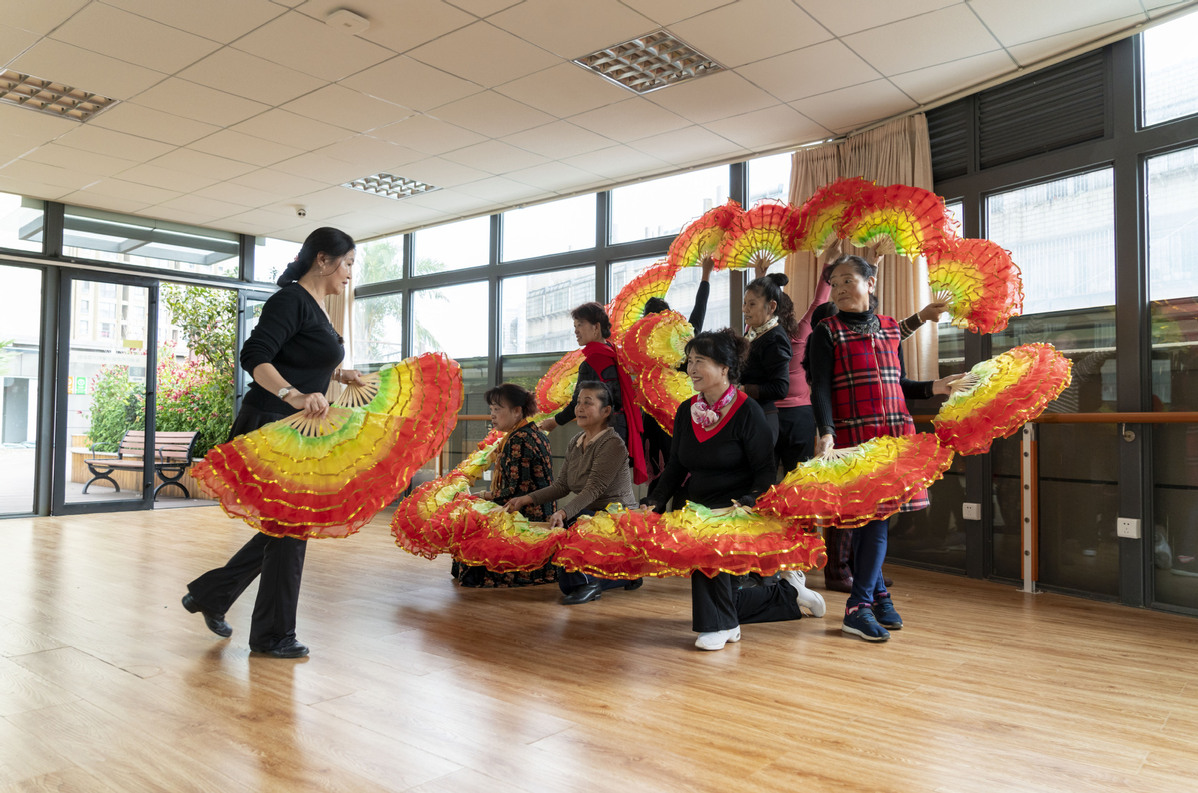'Second homes' bring succor to senior citizens in China


KUNMING-Zhang Yongfen and her husband, both in their 80s, walk each day to a nearby eldercare center to enjoy meals with fellow senior citizens.
"My son works in another city, and my daughter lives far away. They worry that I may forget to turn off the gas when cooking," said Zhang, 81."It's a big relief for them as the center serves good food, and the staff members here are friendly."
The center, only a few minutes by foot from Zhang's home, is in Guandu district, Kunming, capital of Southwest China's Yunnan province.
With an investment of 160 million yuan ($24 million) from the local government, the center was built in 2019 to provide better services for the district's fast-growing senior population.
With subsidies from the district government, a single meal only costs Zhang 8 yuan."It's very cheap, and most importantly, it's convenient for us," she said.
Guandu, with 22 percent of its residents aged 60 or above, epitomizes China's aging society. China currently has 254 million people aged over 60, more than one-sixth of the country's total population. Ensuring that people lead healthy and happy lives in their twilight years has been high on the country's agenda.
Xue Jin, general manager of the company running the Guandu eldercare center, said the facility has been working to meet the increasingly diverse needs of local communities.
"The center now serves as a nursing home, a community center as well as a provider of home-based care for nearby communities," Xue said. While professional staff offer full-day care to those residing in the center, the facility also provides door-to-door services such as food delivery, haircuts and massages for those who choose to stay at home.
On weekday afternoons, the facility turns into a community center where volunteers teach the elderly to sing, dance, cook, arrange flowers, make handicrafts and use smartphones. "The center is like our second home," Zhang said.
China's eldercare system has been steadily improving during the 13th Five-Year Plan period (2016-20), with a total investment of 13.4 billion yuan from the central budget over the past five years.
At the end of June, the country had nearly 220,000 eldercare institutions and facilities, offering over 7.9 million beds for senior citizens, which registered a year-on-year growth of 26.6 percent and 7.7 percent, respectively.
The country aims to further develop its senior care sector and related industries as well as form a comprehensive eldercare system that combines home and community-based eldercare and senior care service institutions, according to a communique released after the Fifth Plenary Session of the 19th Central Committee of the Communist Party of China in late October.
The growing eldercare sector will unleash robust demand for professionals in related industries. In October, an eldercare training academy was established in Guandu, the first of its kind in Yunnan province.
"The academy will likely cultivate more talent and professionals to meet market demand and further promote eldercare services in our district," said Wang Fang, director of Guandu district's bureau of civil affairs.




































